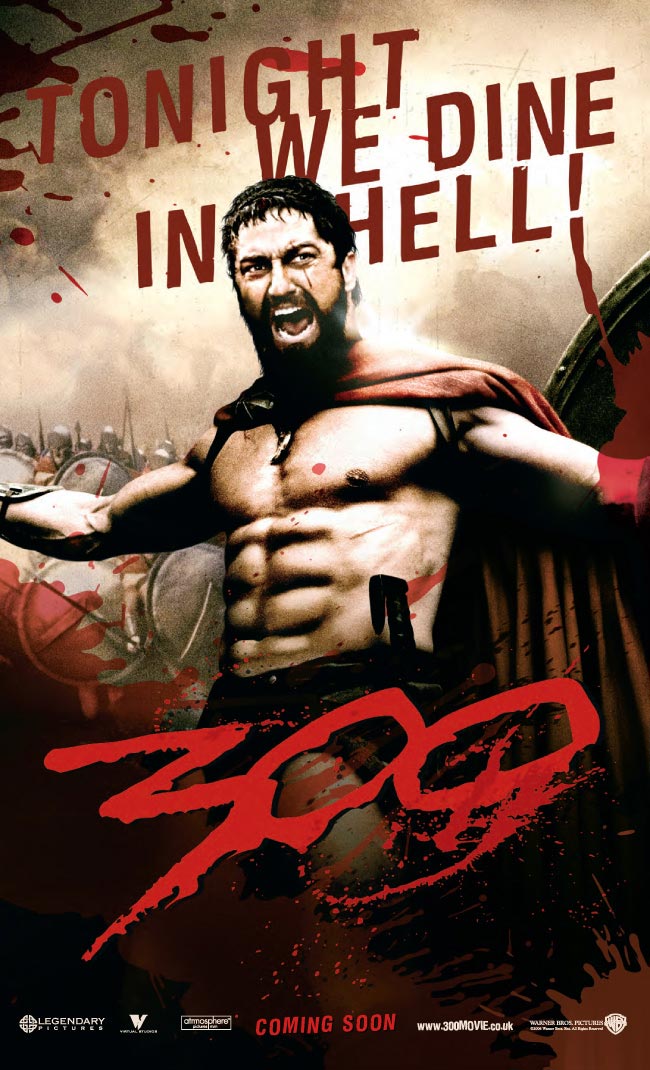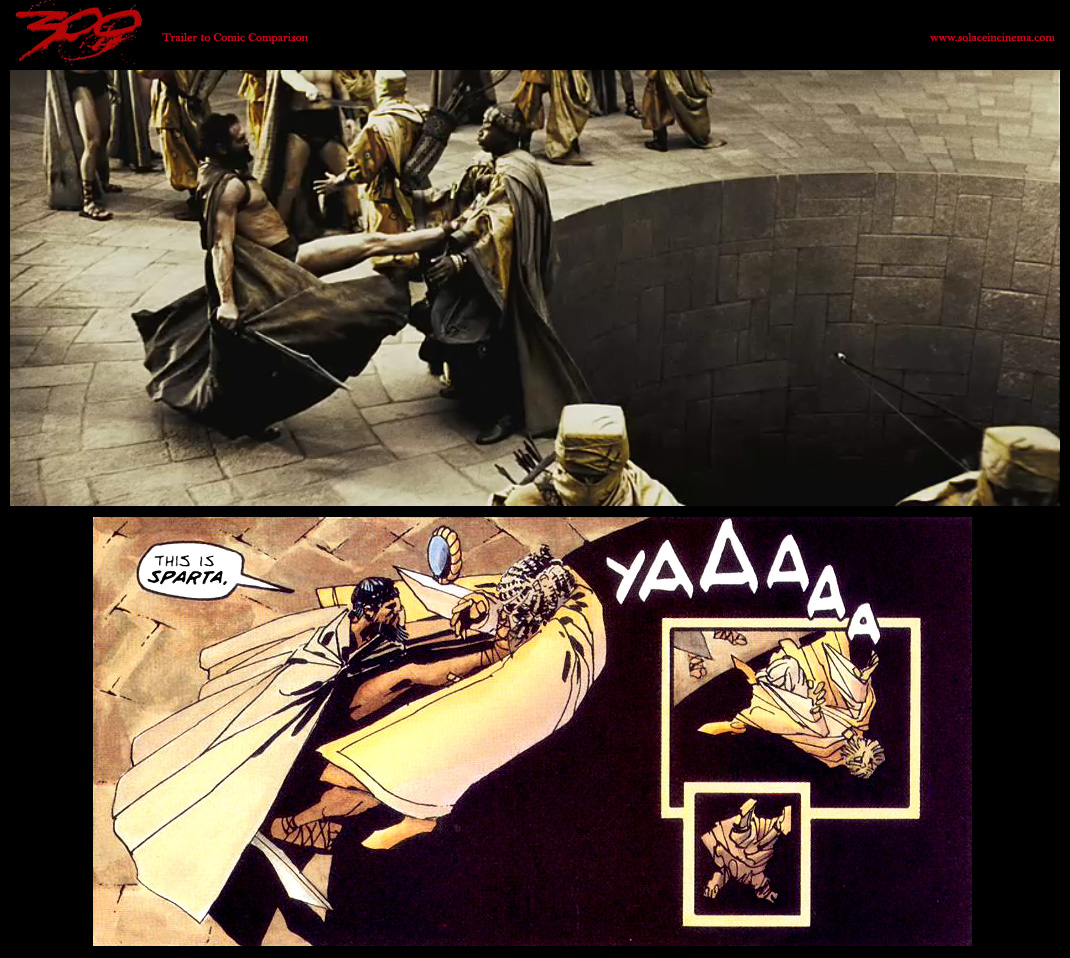300 is a 2006 American
fantasy war film based upon the 1998 comic book series
of the same name created by Frank Miller
and Lynn Varley. 300 is a fictional story
of the Battle of Thermopylae during the second Persian invasion of Greece. The film is a Warner Bross Production and was
directed by Zack Snydery while Miller served as executive producer and consultant.
Music was composed by Tyler Bates and was released on March 6, 2007, three
days before the film opened for public viewing.
The characteristic of
the film is it was filmed mostly with a super imposition chroma key technique
to help replicate the imagery of the original comic book.
The story related the
life of the King Leonidas of Sparta (Gerald Butler) who leads 300 Spartans into
battle against the Persian ‘good-king’ Xerxes (Rodrigo Santoro) and his
invading army of more than 300,000 soldiers. As the battle rages, Queen Gorgus
(Lena Headay) attempts to rally support from Sparta for her husband.
In the whole film the
story is framed by a voiceover narrative by the Spartan soldier Dilios (David
Wenham). Through this narrative technique various fantastical creatures are
introduced, placing 300 within the genre of this classical fantasy.
Let’s examine now the relation between the notion
Myths and Heroes.
First of all, we can
say the battle of the Thermopylae is a Myth because it corresponds to the first
definition of a Myth:
-‘A traditional, typically ancient story revolving around
the activities of gods and heroes which purpose is to explain a natural
phenomenon or cultural practice and serves as a fundamental type in the world
view a point’.
In fact, this story is
not just a fictional film but it is also based on historical facts, when the
Spartans stopped the advance of the Persians.
That was a real Persian historical milestone where the Spartans were in a big inferiority.
In another hand the
figure of King Leonidas is a perfect example of what a hero model is, as he has the skills of two of the three definitions:
-A mythological or legendary figure, often of
divine descent, endowed with great strength or ability, celebrated for his bold
exploits, and favored by the gods.
Actually he is very
courageous and strong, he is not at all fearful, and he challenged Xerxes. If we
focuse on his battles he shows to be very strong and even the most feared
warriors are afraid of him. If we
observe the dialogues between Xerxes and Leonidas, we can appreciate that
Xerxes has more respect towards Leonidas, as it should be the contrary.
-A character with noble qualities who, in the
face of danger and adversity or from a position of weakness, displays courage
and the will for self sacrifice-that is, heroism-for some greater good of all
humanity.
As we have seen, Leonidas is very courageous, strong and he has no fear, and this three
qualities are noble. Thanks to this courage he stops the advance of the Persians
and he becomes a real hero. Leonidas sacrifices
himself for others and even if he knows he will die he comes in the lion´s den.
But he wins time for other Greece´s cities to prepare their battles. Thanks to him Persians lost the battle to
conquer Greece.
We can conclude that 300
is the perfect example to explain the notion ‘Myth and Heroes’ as it
encompasses all the aspects of the notion.



.PNG/305px-L%C3%A9onidas_aux_Thermopyles_(Jacques-Louis_David).PNG)


This looks serious and very interesting.
ReplyDeleteA very good effort, Jose.